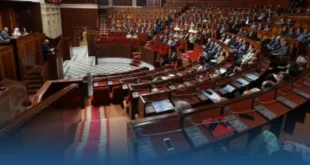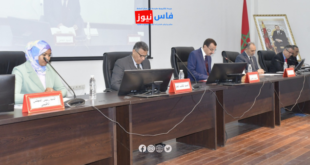Minister of Economy and Finance Nadia Fettah emphasized that cryptocurrencies could play a significant role in enhancing financial inclusion in Morocco during her participation in the Africa Financial Summit (AFIS-2024) held in Casablanca.
The Minister pointed out that despite the risks associated with cryptocurrencies, they represent an opportunity to promote financial inclusion. She explained that Morocco has made significant progress in the field of financial inclusion thanks to a dedicated national strategy, but more efforts are still needed to meet the needs of rural areas and banks.
In this context, Fettah indicated that cryptocurrencies could be a future solution, provided that a strong and secure regulatory framework is established, with guarantees extending beyond Morocco’s borders to enhance confidence in these new financial tools. She also recalled the announcement by the Governor of Bank Al-Maghrib about the draft law regulating cryptocurrencies, which is currently being adopted.
For his part, Sérgio Pimenta, IFC’s Vice President for Africa, highlighted the efforts made to expand the institution’s presence on the continent. He emphasized that this expansion aims to support local populations and companies, especially by accompanying actors willing to participate from the early stages, even before projects are realized.
These statements come within the framework of the Africa Financial Summit, held for the first time on Moroccan soil under the theme “The time of African financial powers has come.” The summit brings together private sector leaders and government representatives to discuss strategies that enable African finance to become a driver of development, economic growth, and resilience.
This move towards cryptocurrencies comes at a time when Morocco is witnessing significant transformations in its financial sector. Bank Al-Maghrib Governor Abdellatif Jouahri recently announced the preparation of a draft law to regulate crypto assets, representing a shift from the blanket ban imposed since 2017. The central bank is also studying the possibility of issuing its own digital currency, which could contribute to enhancing financial inclusion and achieving public policy objectives.
However, the adoption of cryptocurrencies requires a delicate balance between encouraging innovation and ensuring consumer protection. Studies indicate a significant interest in cryptocurrencies among young people and the more educated segments in Morocco, highlighting the need for targeted educational initiatives.
In light of these developments, it appears that Morocco is moving towards adopting a balanced approach in dealing with cryptocurrencies, aiming to benefit from their potential in enhancing financial inclusion while ensuring strong regulatory frameworks to protect consumers and maintain financial stability.
 فاس نيوز ميديا جريدة الكترونية جهوية تعنى بشؤون و أخبار جهة فاس مكناس – متجددة على مدار الساعة
فاس نيوز ميديا جريدة الكترونية جهوية تعنى بشؤون و أخبار جهة فاس مكناس – متجددة على مدار الساعة













